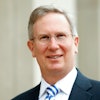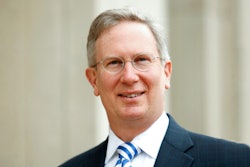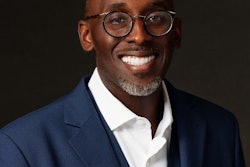Washington D.C.
A new report from the American Association of University Professors says the number of higher education faculty without tenure has increased significantly since 1975.
The AAUP Contingent Faculty Index 2006, a first-time report released today, says 65 percent of faculty held non-tenure-track positions in 2003 — a 23 percent increase since 1975.
These figures will likely increase in coming years, says Flo Hatcher, chair of the AAUP’s National Committee on Contingent Faculty and the Profession. She says the trend has become institutionalized over the decades and will not change.
“It’s reflective of society at large,” she says. “It’s outsourcing of cheap, good seamless and continuous labor.”
The report further breaks down the number of contingent faculty to include full-time, part-time and graduate student positions in 2005. The figures, taken from the U.S. Department of Education’s Integrated Postsecondary Education Data System, categorizes these positions across public, private and for-profit institutions.
The report also categorizes contingent faculty according to institutions granting associate, bachelor’s, master’s and doctoral degrees. In every instance, private institutions reported higher percentages of contingent faculty than public institutions. While the 2005 numbers only account for regionally accredited institutions and exclude non-degree granting schools, the total percentage of faculty without tenure hovered at 62.6 percent.
Hatcher says private institutions might have responded to the IPEDS survey more honestly.
“In my experience, full-time faculty are reported differently at public institutions,” Hatcher says. “They might be reported as special appointments — those aren’t tenured faculty.”
Dr. John W. Curtis, director of research and public policy at AAUP, believes the numbers will continue to grow and have become part of the academic structure in college administrations. As the author of the article accompanying the report, he says the growing number of contingent faculty in postsecondary institutions is detrimental because non-tenure track faculty are often not afforded the support they need to serve students effectively. He also says faculty in non-tenure track positions don’t have the same level of academic freedom in the classroom because their positions depend on student evaluations.
“Part-time faculty might not have the same level of access to libraries and other facilities,” he adds.
Although they may have a comparable workload, part-time faculty generally are paid significantly less than their tenure-track counterparts, Curtis says. They may also be expected to share an office, and some are never given individual phone numbers. He says students suffer because part-time instructors aren’t as accessible outside the classroom as tenured professors.
Founded in 1915, AAUP is an association that concerns itself with issues of academic freedom and the rights of postsecondary faculty. The AAUP Contingent Faculty Index 2006 is being released to initiate discussion on what the organization perceives as a problematic trend in the number of non-tenured faculty.
— By Hurley Goodall
|
Reader comments on this story: |
|
There are currently 2 reader comments on this story: |
|
“outstanding news” -Reginald Cannon, Nashville, TN |
|
“a scholar, leader, and true friend” -Andolyn B. Harrison, Grambling, Louisiana |
© Copyright 2005 by DiverseEducation.com


















